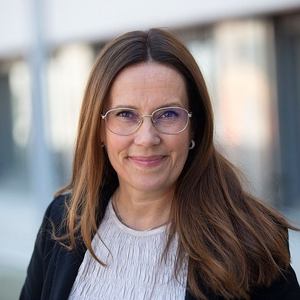World Wildlife Fund Appoints Aquaculture Director
Jose Villalon, a 26-year veteran of the aquaculture industry, is the new director of World Wildlife Fund's (WWF) aquaculture program. Villalon's primary role is to oversee the Aquaculture Dialogues, a set of multi-stakeholder groups developing standards for more sustainable aquaculture production. WWF is the catalyst for the dialogues.
Villalon's expertise in aquaculture and extensive experience working with industry leaders worldwide make him the ideal candidate to manage this growing program, WWF said.
"It is fantastic to have Jose on board," said WWF Vice President of Markets Dr. Jason Clay." He embodies WWF's commitment to work with the aquaculture industry to improve performance and the bottom line globally."
Work in aquaculture at WWF began in the mid-1990s with a comparison of the impacts of producing shrimp from aquaculture and trawling. As a result of the study, WWF decided that aquaculture had far more potential for improvement than trawling. Our first step, starting in 1999, was to create the Shrimp Aquaculture and the Environment Consortium. In 2003, standards for shrimp farming were developed by the consortium.
The scope of WWF's aquaculture program has broadened considerably over the past few years with the addition of salmon, molluscs, catfish, tilapia, basa, tra, and trout to the list of species for which WWF is working with partners to develop standards. WWF also works in priority places around the world to reduce the impacts (or improve the performance) of aquaculture producers.
WWF's goal is to draft and vet standards for 12 species by the end of 2009, then hand the standards off to an existing certification entity or create a new one to manage the system. The goal is that 10 percent of the purchases by retailers worldwide will be from dialogue producers in the first two years after the standards are adopted and 25 percent will be from certified sources within 10 years.
"I am delighted to be part of the growing aquaculture team at WWF," Villalon said. "WWF has a mature and solid framework for credible standards development and we look forward to accelerating this process. It is energizing to see how the industry sector has embraced this program and we anticipate working side-by-side with industry to make it a worldwide success."
Prior to coming to WWF, Villalon operated his own consulting business in Mazatlan, Mexico for five years. The firm worked with private industry on technical shrimp production protocols and farm accounting systems. It also developed and marketed a line of shrimp-based products for a canning company to address the market demand for ready-to-eat products. Previously, Villalon operated a 470-acre shrimp farm in Mazatlan for two years. During that period, production increased by 23 percent.
Villalon's career also includes five years at AquaNova, the wholly owned subsidiary of Desc, which operated a shrimp feed mill and processing plant. His responsibilities included overseeing new product development and market penetration in Europe and Japan, as well as selling and exporting the farm's production.
Villalon's aquaculture career began in Guayaquil, Ecuador, where he worked at Marine Harvest International from 1983 to 1994. His roles there included vice president/technical director of shrimp farm production, with bottom-line accountability for its hatchery, feedmill, and farm operations.
Villalon holds a master of science degree in fisheries biology from the University of Washington in Seattle and a bachelor of science degree in biological sciences from Florida International University. He is a former member of the World Aquaculture Society's (WAS) Board of Directors and a former vice president of WAS' Latin American chapter. He also has served as a board member for the Ecuadorian Aquaculture Feed Manufacturers Association.
Villalon lives in Virginia with his wife Anita and children Gabriela and Santiago. He works at WWF's U.S. headquarters in Washington, DC.










